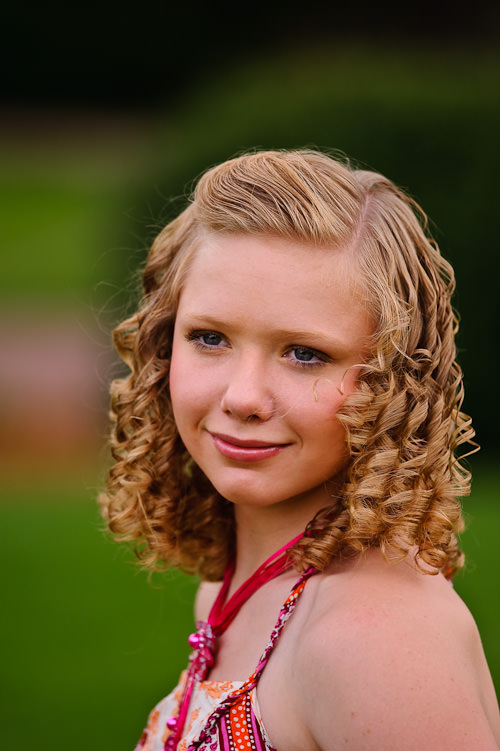Point And Shoot Camera Meaning
Why would you pick DSLR vs Point and Shoot Camera or vice-versa? As DSLRs are becoming more and more affordable, a lot of people are wondering if it is time for them to switch to a DSLR and toss their point and shoot cameras. Nowadays, point and shoot cameras have a long list of features and capabilities, compared to even slightly older versions. GPS, face-detection, smile detection and many other new technologies are making their way into the point and shoot market, over-saturating it with new cameras and making it more difficult for people to choose the right camera for their needs. A similar thing is also happening in the DSLR world, where manufacturers are dividing the market into multiple segments, trying to capture a range of potential customers: from entry-level to advanced professional. But one thing for sure – there are many people, who are stuck in the middle, trying to decide whether they want to stay with their point and shoots, or bite the bullet and switch to a DSLR.

In this article, I will go through the advantages and disadvantages of both DSLRs and point and shoots, so that you can evaluate what's best for your needs and make the right decision. So, if you are one of those people who are stuck in the middle, this article is for you.
Anyway, let's analyze the advantages of point and shoot cameras:
- First and foremost, it is the Size . You can simply slip them into your pocket and carry them anywhere. Heck, some of the new phones have excellent cameras and you don't even need a dedicated point and shoot camera anymore…hitting those ski slopes and keeping good memories is easier than ever.
- Weight. Most point and shoot cameras are very light weight. You do not need extra bags, tripods or other accessories to carry around. There are, however, advanced "SLR-like" point and shoot cameras that tend to get bigger and bulkier, due to their super zoom capabilities.
- Fixed lens. All point and shoot cameras come with fixed lenses. You don't sweat in trying to change lenses.
- Massive Depth of Field. In layman's terms, it means that point and shoot cameras typically cannot separate foreground from background, bringing everything in focus and making the entire scene look sharp. This could be both good and bad.
- Price. A point-and-shoot camera is always going to be cheaper to purchase and maintain than a DSLR.
Disadvantages of point and shoot cameras:
- Quality. Due to the smaller size of the camera sensor, point and shoots are no match to DSLRs when it comes to image quality, even with more Megapixels.
- Downside of a large depth of field. While a point and shoot gets your entire scene nicely in focus, there is not much you can do to isolate your subject from the background and make it look soft and blurry. With DSLR cameras and special lenses, you can get a very shallow depth of field and completely isolate your foreground from the background.
- Adaptability. Point and shoot cameras are not upgradable. You cannot change their lenses or mount external flashes (with the exception of some high-end models) and the number of external accessories is limited to the brand and make of the camera.
- Limited control. Unlike DSLRs, point and shoot cameras give much less control over the process of taking pictures. In many compact point and shoot cameras, there is very limited control over aperture and shutter speed, there is no distance marking on the lens and the cameras are tougher to control in manual mode.
- Shooting in the dark. Point-and-shoot cameras do not have good capabilities for night photography.
- Inability to capture wide-angle shots. Most point and shoot cameras have lenses that start at 30-35mm, which means that you cannot fit much of the scene and would have to stand back to capture more.
- Most point and shoot cameras are limited in how fast they can capture an image. Point and shoots are not designed for sports and action photography.

Now, let's talk about the main advantages DSLRs:
- Better image quality. A DSLR camera typically has a much bigger sensor than a point and shoot camera – a point and shoot typically has a sensor area that is only about 3-5% of a full frame DSLR sensor. Having a big sensor helps to get images that have much less noise (noise is the grain you typically see in a picture) and much better overall image quality.
- Better sensitivity to light. Less noise means that you can work in very dim environments and capture photographs that you would never be able to with a point and shoot camera.
- Shutter and focus speeds. DSLRs can acquire focus very quickly and take multiple shots per second. Professional DSLRs are capable of capturing up to 10 frames per second. All professional action and sports photography is done with SLRs.
- You see what you shoot . A DSLR is constructed with reflex mirrors, which means that you look through the lens, instead of a see-through hole in the camera.
- Flexible Controls. DSLRs are not necessarily created for "simplicity" as most point and shoots are. So, you will typically find a lot more buttons and controls on a DSLR than on a point and shoot. Once you learn how to use those controls, you can quickly change settings, if necessary.
- Better investment. Generally, DSLR cameras hold their values much better than point and shoots. Although no digital camera can be considered a good investment, chances of selling your DSLR at a reasonably good price are much higher than even a slightly used point and shoot camera. Our Nikon D80 that we first bought was sold for about 10% less than what we bought it for after a year of moderate use.
- Ability to use different lenses. There is a big array of lenses that can be mounted and used on DSLRs, from super wide angle to telephoto, depending on your needs. My husband uses long telephoto lenses such as the Nikon 300mm f/4.0 for his bird photography, while I primarily shoot with portrait lenses such as the Nikon 50mm f/1.4. On point and shoots, you are limited to the "optical zoom" of the camera lens. DSLR lenses are also much better optically compared to lenses in point and shoot cameras.
- Full control over depth of field. You are fully in charge of isolating foreground from background or bring everything in focus through aperture control of the lens. Some portrait and telephoto lenses can really isolate your subjects and create a creamy and beautiful background blur, also known as "bokeh".
- Weather sealing. Forget about using a point and shoot in challenging weather conditions. While point and shoot cameras are only suited for normal use, higher-end DSLRs can withstand dust, moisture, rain and snow and severely cold weather. My husband often shoots landscapes in subzero temperatures with his DSLR and he has never had a problem with it.
- Solid construction. DSLRs are built to last. While there are some parts that are made of tough plastic, the professional DSLRs are made of magnesium-alloy and can take a lot of physical abuse, while point and shoots would quickly break down.

Downside of owning a DSLR:
- High price tag. DSLR cameras are more expensive than point and shoot cameras. Even a used, entry-level DSLR is probably going to cost more than an advanced point and shoot. But the expense does not stop with the camera – good lenses typically cost more than the camera itself and you will have to cash out on other accessories (larger camera bags, filters, memory cards, etc). To get started, an entry-level camera with a kit lens will cost you anywhere between $500-800. That's just the initial cost. Overtime, you might spend three times as much on accessories alone.
- Complexity. DSLR cameras are quite complex to work with. Once you buy a DSLR, you will need to invest a lot of time to learn the main features and figure out what all the buttons do. Some people get easily frustrated with this process. With a DSLR, you will have to learn how to be patient.
- Ongoing maintenance. The cost of maintenance on a DSLR is much higher than on a point and shoot. The camera sensor can get dirty and dust can get into lenses. While all manufacturers have some sort of a warranty period, there is no guarantee that things will keep on working when the warranty expires. Obviously, the cost of repair on DSLRs and lenses can get outrageously expensive. You will have to learn how to care for your camera and lenses to prevent dust accumulation and other mechanical problems.
- Weight and Size. These babies are big and heavy! It took me a while to get used to the size and the weight of my camera. My neck would hurt so badly from carrying the camera around. We ended up purchasing special straps to ease the pain. Weight also makes it hard to hold the camera still and you will have to learn how to properly hold it to have less blur in your pictures.
- Noise. Due to the nature of DSLRs and their construction, every time the shutter opens and closes, there is a substantial amount of noise that comes out of the camera. Some newer cameras now have a special "Quiet" mode (such as Nikon D600), which helps lower the noise.
I am not going to ask if you've reached the limit of your point and shoot camera, because most likely, you haven't. Personally, I used to shoot everything in auto mode, trusting the camera to do all the work for me. I didn't think about the settings or functions and to be honest, I don't even remember changing any camera settings, because I didn't care. If a picture didn't come out right, I would always blame the camera, thinking that only a DSLR would produce a better image. Now that I know how to use a DSLR, every once in a while when I get a hold of a point and shoot, I realize that it was me who didn't know how to take pictures, not the camera. But owning a DSLR pushed me to learn photography and get to know the basics such as ISO, aperture and shutter speed. I didn't think about any of those before, because they were all pre-determined for me by my simple and easy to use point and shoot.
So, keeping in mind all your needs, ask yourself these simple questions to find out if you really need a DSLR:
- Am I ready to invest my time and a considerable amount of money into a DSLR?
- Am I willing to learn about photography and the camera?
- Do I need a more advanced camera for more than just family pictures?
- Can my business or family benefit from this purchase?
Then weigh in the advantages and disadvantages from the above list and see what you are leaning to. If you are leaning towards purchasing a DSLR, please take a look at my husband's DSLR purchase guide. He gives nice pointers on what to pay attention to while purchasing a new camera. Oh, one more thing, do NOT toss your old point and shoot, because you might need it someday!

Here is my quick story to end this article:
As a mother of two children, it is very important for me to preserve my family memories in forms of pictures. I always wanted to have a big album, full of beautiful pictures of my family for us to go back and look at in the future. I didn't think about cameras or lenses, because I thought that if I wasn't able to capture those special moments with my point and shoot camera, I could always hire a photographer to take our pictures. But soon after, I realized that there are too many of those special moments that happen in our lives (first smile on my child's face, first walk, etc.) and it is not always practical and, in some cases impossible, to hire a photographer to save those memories. While trying to document those moments with what I have, I quickly started getting frustrated with bad pictures and memories that were lost forever. I was getting tired of thinking "I wish that image was better" or "I wish it was not as blurry" and really wanted to do something about it. Two years ago, my husband and I finally made the decision to upgrade to a DSLR and I am grateful that we did, because not only am I able to photograph my family and my kids, but also, I always had a passion for photography and I now have the right tools to fulfill my dream of becoming a professional photographer.
Point And Shoot Camera Meaning
Source: https://photographylife.com/dslr-vs-point-and-shoot-camera
Posted by: smithglight.blogspot.com

0 Response to "Point And Shoot Camera Meaning"
Post a Comment